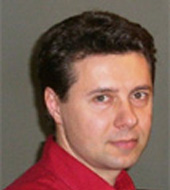Summary
Definition
History and exam
Key diagnostic factors
- excessive daytime sleepiness
- cataplexy
- hypnagogic/hypnopompic hallucinations
- sleep paralysis
Other diagnostic factors
- chronic fatigue or tiredness
- poor performance at work
- poor memory and concentration
- car accidents
- slurred speech
- blurred vision
- irregular breathing pattern
- sleep attacks
- fragmented nocturnal sleep
- symptoms of other sleep disorders
- obesity
- status cataplecticus
- hepatomegaly
- paresis
Risk factors
- low cerebrospinal fluid hypocretin
- human leukocyte antigen (HLA)-DQB1*0602
- Prader-Willi syndrome
- Niemann-Pick disease type C
- linkage to 4p13-q21
- genes on chromosome 6 or chromosome 21
- hypothalamic tumors
- hypothalamic infarct/hemorrhage
- head trauma
- central nervous system infection
- central nervous system arteriovenous malformations
- multiple sclerosis
- myotonic dystrophy
Diagnostic tests
1st tests to order
- actigraphy and sleep diary
- overnight polysomnography
- multiple sleep latency test (MSLT)
Tests to consider
- HLA typing
- cerebrospinal fluid hypocretin-1 level
- maintenance of wakefulness test
Treatment algorithm
Contributors
Authors
Octavian C. Ioachimescu, MD, PhD

Associate Professor
Emory University
Atlanta VA Medical Center
Atlanta
GA
Disclosures
OCI is an editor of a book cited in this topic.
Peer reviewers
Kumaraswamy Budur, MD
Medical Doctor
Sleep Disorders Center
Department of Psychiatry
Cleveland Clinic
Cleveland
OH
Disclosures
KB declares that he has no competing interests.
Seiji Nishino, MD, PhD
Associate Professor
Psychiatry and Behavioral Science
Stanford University School of Medicine
Stanford
CA
Disclosures
SN declares that he has no competing interests.
Kingman P. Strohl, MD, FCCP
Professor of Medicine
Director
Center for Sleep Disorders Research
Professor of Anatomy
Department of Medicine
Case Western Reserve University
Cleveland
OH
Disclosures
KPS declares that he has no competing interests.
Paul Reading, MBBS
Consultant Neurologist
James Cook University Hospital
Middlesbrough
UK
Disclosures
PR declares that he has no competing interests.
Use of this content is subject to our disclaimer